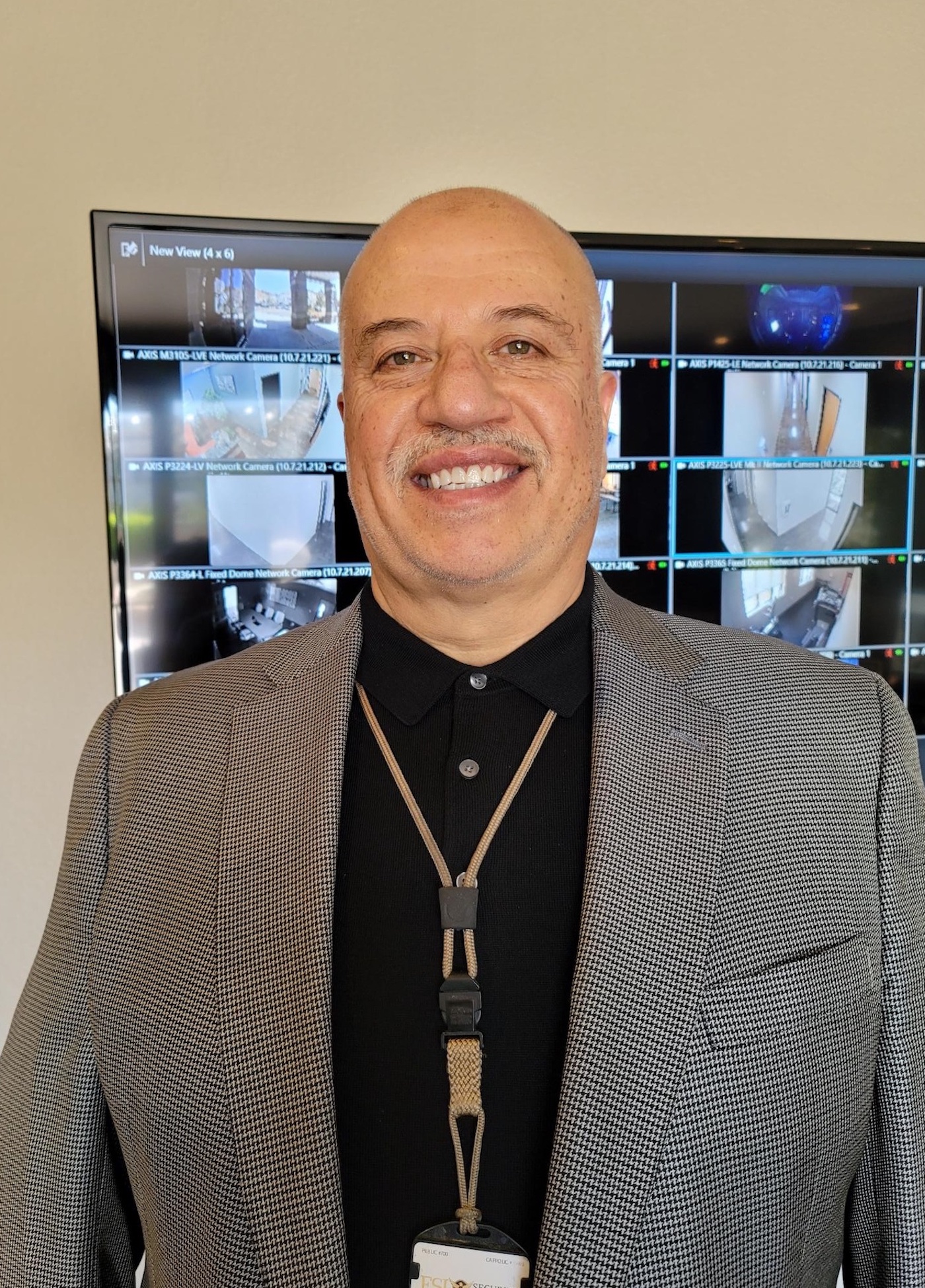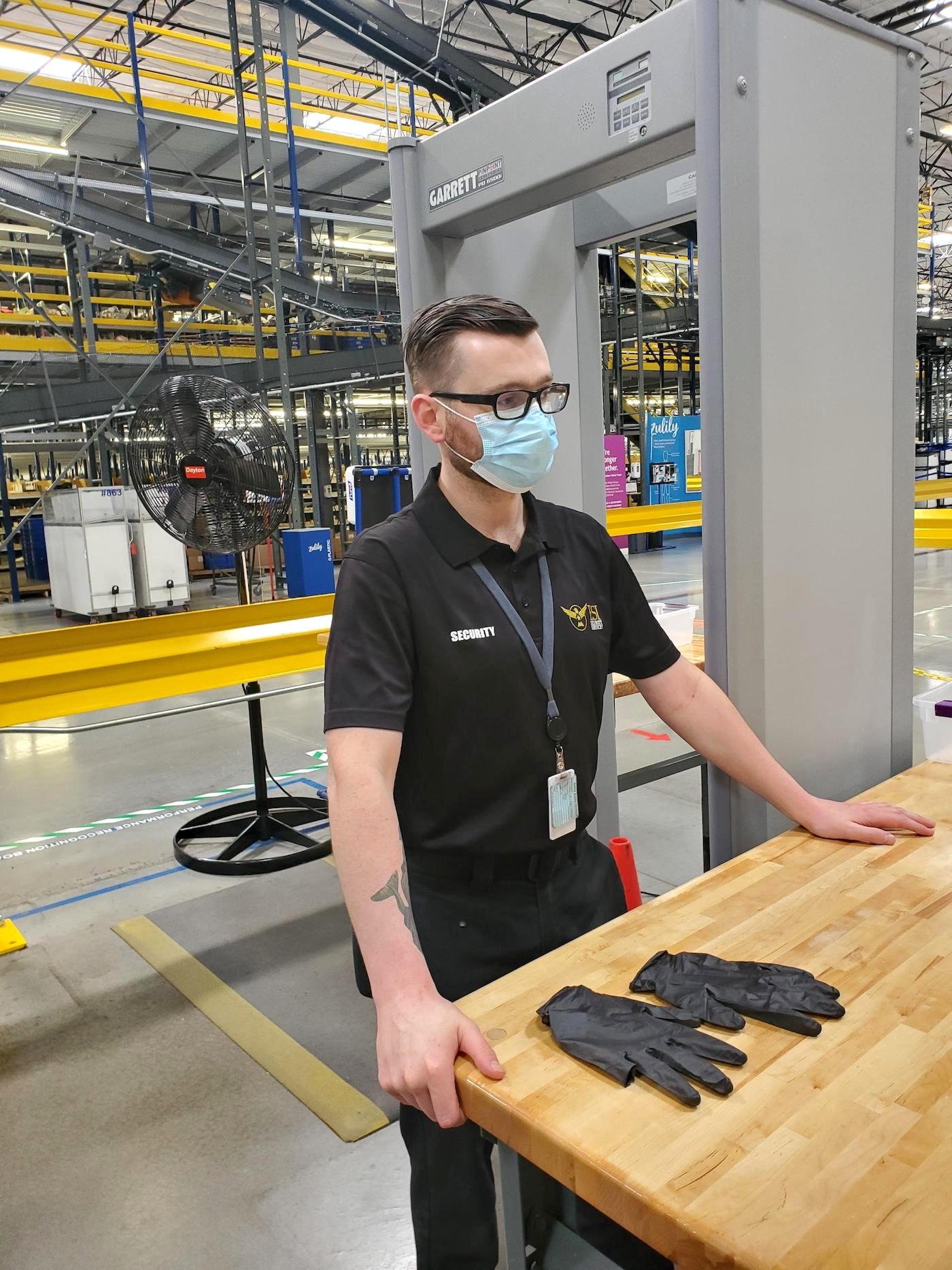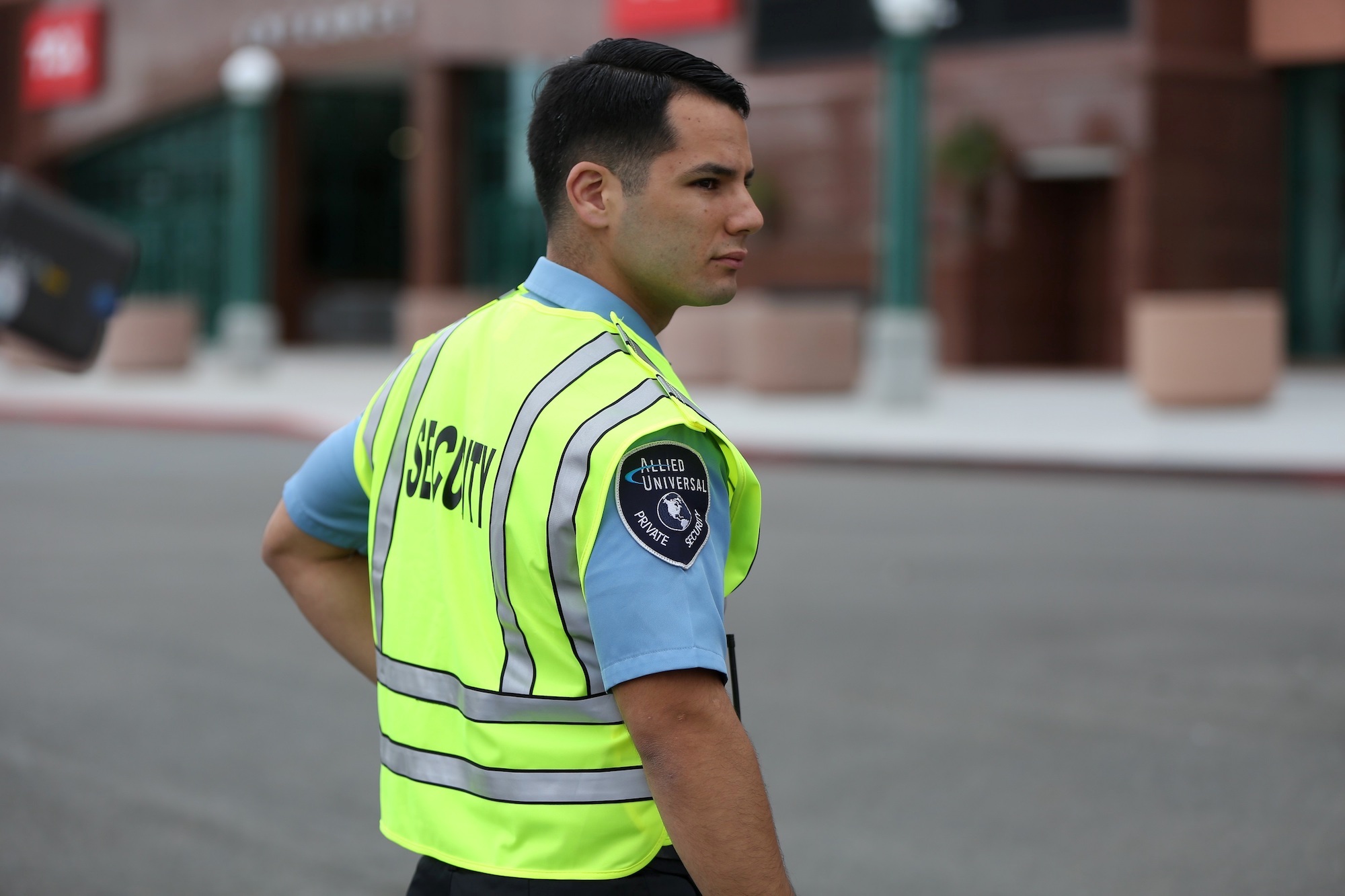For some security companies, it's been a struggle over the past year to not only hire enough workers — but also retain them. Photo: Adobe Stock
 Mike Hendi, CEO of Reno-based ESI Security Services, says his company’s revenue was down 60% in 2020 compared to 2019. Courtesy Photo
Mike Hendi, CEO of Reno-based ESI Security Services, says his company’s revenue was down 60% in 2020 compared to 2019. Courtesy Photo
 A security guard employed by Reno-based ESI Security Services stands inside the warehouse of one of its clients. Courtesy Photo
A security guard employed by Reno-based ESI Security Services stands inside the warehouse of one of its clients. Courtesy Photo
 With headquarters based in Conshohocken, Pennsylvania, and Santa Ana, California, Allied Universal serves 50,000 client sites in the U.S., as well as Canada, Mexico and the U.K. Courtesy Photo
With headquarters based in Conshohocken, Pennsylvania, and Santa Ana, California, Allied Universal serves 50,000 client sites in the U.S., as well as Canada, Mexico and the U.K. Courtesy Photo